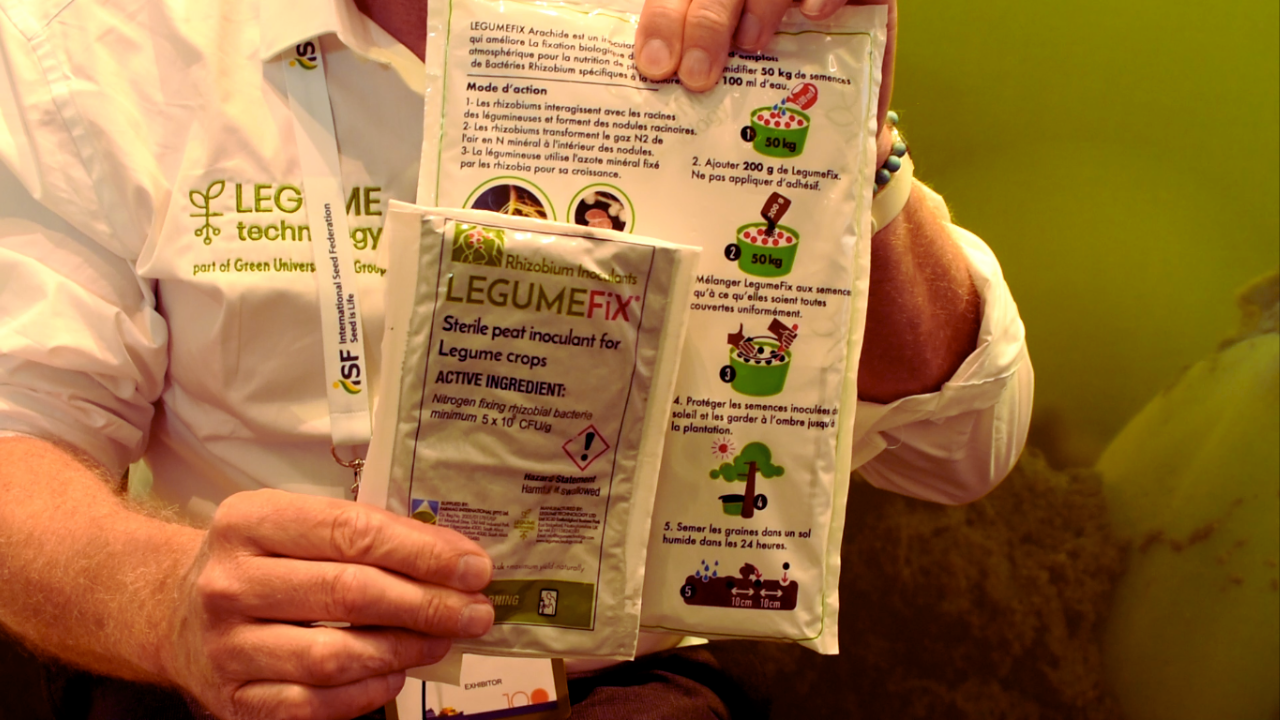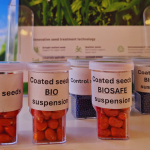Rotterdam, 28 May 2024 – Legume Technology, a global provider of microbial solutions for agricultural crops, has secured a grant commitment of $1,620,669 from the Gates Foundation, to support the company’s mission of addressing the needs of smallholder farmers in Africa through their groundbreaking product – LEGUMEFiX. This innovative biofertilizer solution, currently in the trial phase in Tanzania and Uganda, promises to revolutionize how legume farmers manage soil fertility on the continent.
The Innovation:
Legume Technology, headquartered in the United Kingdom (UK), has established itself as a global leader in microbial solutions, serving farmers in over 30 countries across multiple continents.
“We take bacteria from the family of rhizobium,(the bacteria that live in symbiotic association with the root nodules of the leguminous plants) capable of transforming gaseous nitrogen from the air into fertilizer nitrogen for crop growth, a process known as biological nitrogen fixation,” said Dr. Bruce Knight, founder and Chief Executive Officer (CEO) of Legume Technology, during an interview with Kass Media Group at the International Seed Federation’s World Seed Congress, in the Netherlands.
Dr. Knight was discussing the product LEGUMEFiX, which is the first product developed by Legume Technology. It represents a significant advancement in agricultural technology, harnessing the power of beneficial soil microbes to enable farmers to improve soil fertility and increase crop yields, without relying on expensive and environmentally harmful synthetic fertilizers.
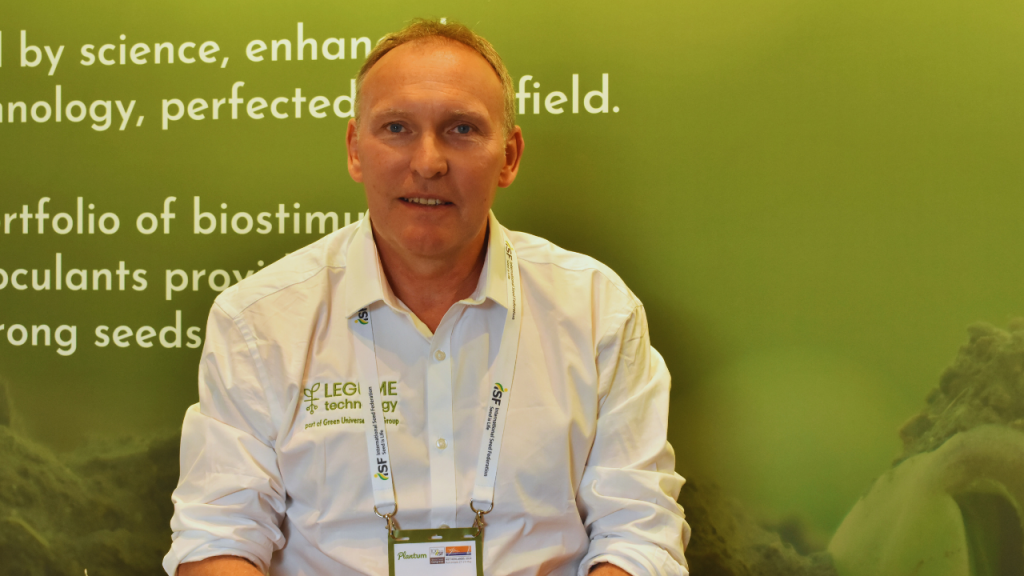
Agricultural Challenges in Africa:
Many types of grain legumes such as Lentils, Peas, Beans, Soybeans, and Peanuts, are grown in various parts of Africa including Kenya, but ensuring consistent and optimal yields for these crops remains a challenge.
Dr. Knight spoke of one such challenge faced by soybean farmers, saying, “Farmers might notice with a soybean crop that if it doesn’t have enough nitrogen, it will have yellow leaves and quite a low yield.”
He said that this issue can be addressed by introducing inoculants, which is a special substance that is added to the soil to help plants grow better. It contains helpful bacteria that join with the plant’s roots and create a partnership. These bacteria act like tiny factories, making important nutrients, like nitrogen, that the plant needs to grow.
By using inoculants, farmers can ensure that their crops stay healthy, prevent leaves from turning yellow, and increase their harvest without harming the environment. Legume Technology’s LEGUMEFiX relies on aseptic techniques to produce pure cultures containing only high levels of beneficial bacteria, free from contaminants.
Dr. Knight said that LEGUMEFiX has traditionally been packaged in larger quantities, suitable for large mechanized farming in Europe and North America.
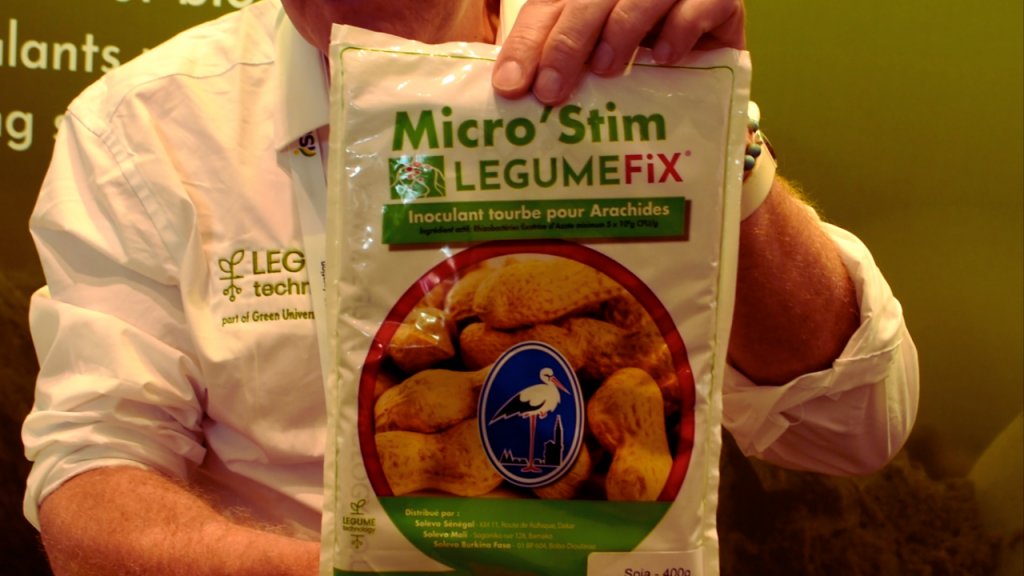
“The kind of pack size that we sell at the moment is larger, a pack will treat up to 60 kilos of seed. So this is quite a big packet for a small holder to require…in Africa, we tend to find the farming sizes quite small, much smaller than the large mechanized farms,” he said.
Dr. Knight added that the larger packets make it difficult for many smallholder farmers in Africa to acquire, compelling them to seek alternative solutions.
Scientific Processes and Product Description:
Thus, Legume Technology, with the support of the Gates Foundation, has initiated a unique drive to produce high-quality, biofertilizer products, similar to those used by commercial growers, in smaller packet sizes, making them more accessible to smallholders.
The grant, awarded under the Global Growth & Opportunity division, focuses specifically on Agricultural Development.
“We will be able to make small packets, which are then much more of the correct size for a smallholder to buy for a small area of land,” Dr. Knight said.
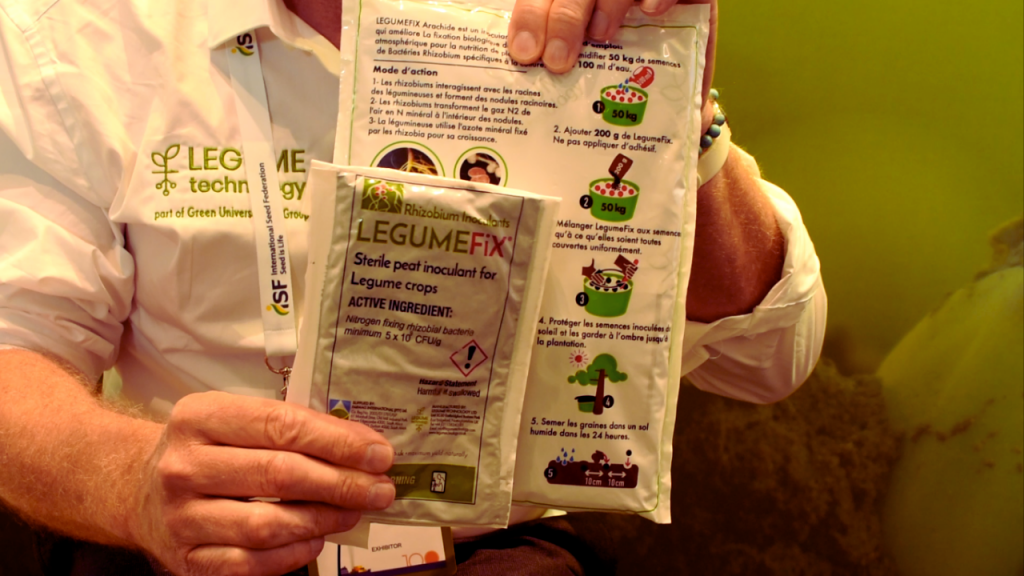
He said that through rigorous scientific processes, Legume Technology ensures that their products contain only the desired bacteria, eliminating any risks to farmers or surrounding vegetation.
“Our specially selected bacteria form a symbiotic bond with legume crops, utilizing a natural process to enhance nitrogen availability in the soil.” Dr. Knight said.
To be precise, the product that Legume Technology supplies is a brown powder. This brown powder is sticky, allowing farmers to apply it to seeds, forming a coating on the seed surface. When the farmer plants the seeds, they are planting them along with millions of beneficial bacteria.
As the seeds begin to sprout, the bacteria attach to the roots and create small bumps called nodules.
Dr. Knight said that the beneficial bacteria, housed in the nodules on the plant’s root system, take in nitrogen gas from the air that seeps into the soil. Then, they convert this nitrogen gas into ammonium compounds, a type of nutrient that the plant can use for growth. This process mimics the nutrients plants would otherwise get from chemical fertilizers.
“It’s just a natural process. And it’s essentially using free resources—the nitrogen in the air around the plant,” he said.
Future Endeavors:
Dr. Knight, who established Legume Technology nearly 25 years ago, said that they are working to develop further microbial biostimulants to enhance agricultural productivity.
He said that they have a target of “producing new products which will help maize crops to establish faster and yield higher.”
Fun Fact:
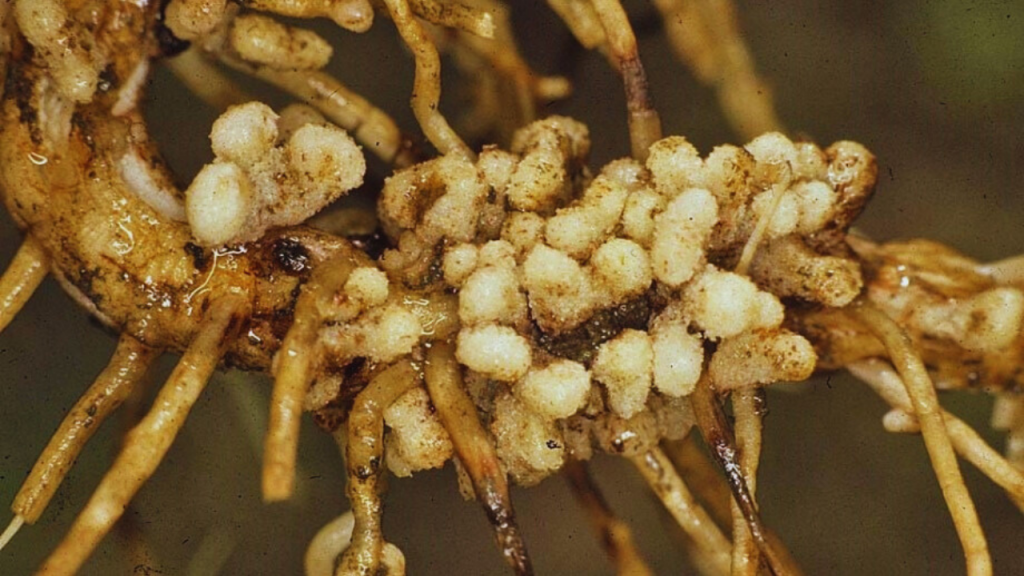
Think of this bacteria-plant relationship as a perfect partnership. The plant sends out a chemical invitation, saying, ‘Hey, good bacteria, come hang out in my roots!’ These helpful bacteria then move in and start making nitrogen, which acts as food for the plant. But here’s the kicker: the plant also gives these bacteria some sugary snacks in return! It’s a win-win situation where both the plant and the bacteria benefit. This entire process is how nature recycles nitrogen from the air, making it available for plants to use. Essentially, it’s turning fresh air into plant food, all thanks to this amazing teamwork!

